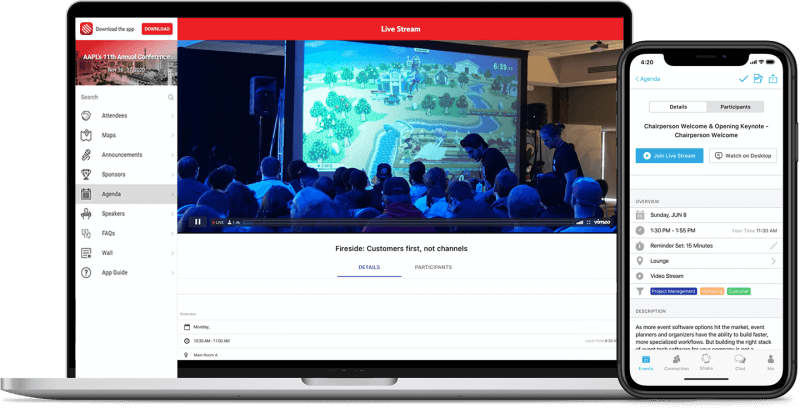Hiring a knowledgeable fund administrator can help relieve you from non-core, operational back-office functions and enhance your business
A growing trend among investment fund managers is to outsource back-office accounting and administration. Outsourcing allows fund managers to focus on deal making and securing capital while an independent third party manages regulatory compliance, risk mitigation, and providing credibility and peace of mind to their investors.
How Much Assistance Do You Need?
The services administrators offer are usually on a spectrum between accounting and investor-facing functions. Some may even provide asset management support through loan servicing.
As a fund manager, be careful during the selection process to ensure you hire the appropriate administrator for the service level you seek. Here a few questions to consider:
- Does the fund have in-house support that seeks to outsource a limited number of tasks, or does it want to offload the accounting or back-office function in its entirety?
- Does the fund manager have an existing investor capital base or will it be raising capital from new sources?
Service Level Agreements (SLA) or Scope of Services (SOS) lay out the daily, weekly, monthly, and annual tasks the administrator will provide. Spending a little time upfront to review the SOS will mitigate the risk of tasks falling through the cracks later.
Generic service-level agreements may cover much more than the specific needs of your fund and its investors, but they may not provide the proper support to the fund manager. Consider a tailored SOS that reduces overlaps in tasks your internal accountants or third-party CPAs and loan servicers already provide. This can also help achieve a smooth integration between the fund manager’s internal team and external providers as they begin working side by side.
Some of the services a fund administrator may provide include (but are not limited to):
- Financial statement preparation.
- Bank account reconciliations.
- Calculation of investor income allocations.
- Investor onboarding and capital account tracking.
- Investor statement preparation and delivery.
- Net asset value (NAV) calculations.
- Investor portals, hosted accounting software, or other technology.
- Tax return and Schedule K-1 preparation.
- Support services to the fund’s financial statement auditors.
- Anti-money laundering (AML) or Know Your Customer (KYC).
Benefits of Administration
Most benefits to using a fund administrator are related to the term “back office.” Fund managers can leverage the administrator’s infrastructure in place of their own and advertise the administrator’s independence and expertise. Here are a few of those benefits:
- Growth and scalability. The knowledge and experience of an administrator better equips you for the challenges of a growing fund. Staffing flexibility allows you to respond quickly to increases in the volume of transactions while reducing the cost of hiring new or idle staff.
- Credibility and independence. A significant benefit of using a third-party administrator is the credibility you gain by having financial professionals oversee the accounting functions. Investors can have a sense of comfort knowing there is additional oversight on their investment.
- Timeliness and accuracy. A cornerstone of successful fund administration is the timely delivery of reports and distributions. Fund managers can enhance their reputations by showing a history of consistent delivery without needing intermittent “true-ups.”
- Mitigating risk. The fund administrator can help you navigate increasingly complex regulations, thereby reducing business risk. Information technology systems continue to be a target to businesses, and a quality administrator will safeguard the fund’s financial data. Management may also leverage the administrator’s knowledge of best practices and efficiencies.
- Reduced costs. The amount you pay today may be significantly less than the intangible costs you pay down the road. Any of the other benefits listed could have a significant impact on the time you might spend on disruptions to your operations.
Above and Beyond
Hiring the right fund administrator alleviates you from spending time on non-core, operational back-office functions and enhances your business.
A knowledgeable administrator goes beyond simple data entry and implements best practices. A good administrator can exceed expectations by simply entering a transaction in QuickBooks, providing an investor statement, or preparing a Schedule K-1. Additionally, the administrator should be able to walk through a complex accounting transaction and provide options, assist with answers to investor questions on their statements, and work with you on tax planning and mitigating negative tax consequences.
Consider using a full-service CPA firm that offers accounting and administration, tax compliance and planning, and assurance services. Working with a firm with in-depth knowledge of the private lending and real estate industry gives you insights into recent trends and hot topics. It also allows you to leverage the administrator’s existing relationships with other service providers within the industry.
Open and ongoing communication throughout the year leads to better business decisions. Using an industry expert niched in private lending allows you to ask the tough questions about accounting and the tax impacts of loan loss reserves, delinquencies, foreclosures, and many other transactions.
Partnering with an outsourced, independent fund administrator provides you with the flexibility to focus on your core services—raising capital and making deals. Consider integrating an administrator as part of your team to save time, enhance business credibility, and set a solid foundation for growth.












Leave A Comment